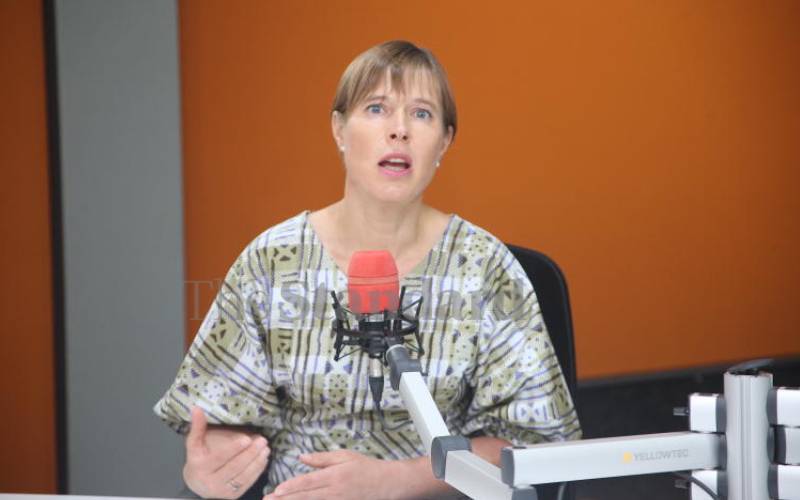×
The Standard e-Paper
Home To Bold Columnists

Visiting Estonian President Kersit Kaljulaid says nations succeed when they do things differently.
Appearing on Standard Group’s Spice FM morning show, The Situation Room, the Head of State of the world’s most digitally-transformed society said Estonia had managed to exit from middle-income rank to a lower level rich country.